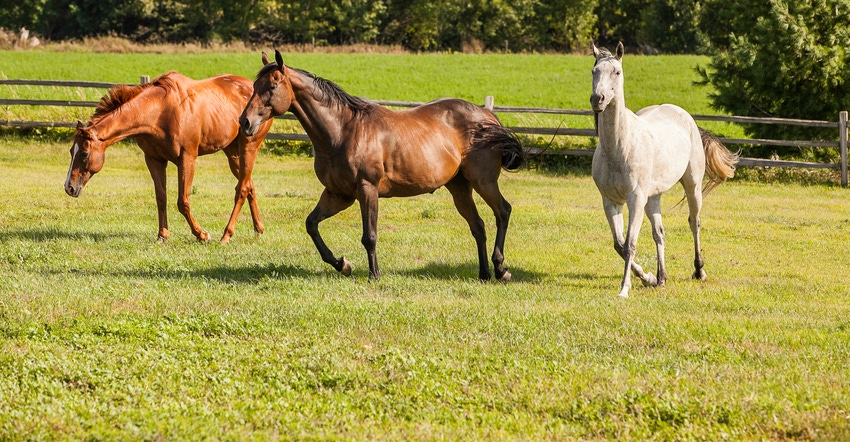July 29, 2020

The Kansas Department of Agriculture has now identified positive cases of vesicular stomatitis virus in 20 counties in Kansas. KDA’s Division of Animal Health continues to respond to the outbreak that began in south-central Kansas in mid-June and has now expanded its reach to the north and east.
Nearly 90 premises have tested positive for VSV in Allen, Bourbon, Butler, Chase, Cherokee, Coffey, Cowley, Elk, Greenwood, Labette, Lyon, Marion, Miami, Montgomery, Morris, Neosho, Sedgwick, Sumner, Wilson and Woodson counties. In addition, KDA is awaiting laboratory results from symptomatic animals in other counties as the outbreak continues to spread.
All premises with confirmed cases of VSV in horses and cattle have been quarantined; in addition, any premises with animals showing clinical signs consistent with VSV are placed in quarantine. More than 90 premises are currently under quarantine. A quarantine for VSV lasts for at least 14 days from the onset of symptoms in the last animal on the premises. Quarantines are not lifted until a veterinarian has examined all susceptible animals on the premises. Over 90 premises have been released from quarantine.
“The VSV outbreak is still spreading, and all owners of horses, cattle, and other livestock must continue to take action to protect their animals,” says Justin Smith, Kansas animal health commissioner. “You can help slow the spread of this virus by taking aggressive steps to limit exposure to insects that are the primary source of infection and by keeping your animals separate from other animals which may be infected. Meanwhile, you should monitor for symptoms of VSV, and call your veterinarian if you see anything of concern.”
What is VSV
VSV is a viral disease which primarily affects horses but can also affect cattle, sheep, goats, swine, llamas and alpacas. At this time, the vast majority of confirmed cases of VSV in Kansas have been horses, although some cattle have also been diagnosed. KDA has advised the beef industry to be vigilant in monitoring their cattle for symptoms.
In horses, VSV is typically characterized by lesions that appear as crusting scabs on the muzzle, lips, ears, coronary bands, or ventral abdomen. Other clinical signs of the disease include fever and the formation of blister-like lesions in the mouth and on the dental pad, tongue, lips, nostrils, ears, hooves and teats.
Infected animals may refuse to eat and drink, which can lead to weight loss. VSV can be painful for infected animals and costly to their owners. Although it is rare, humans can also become infected with the disease when handling affected animals and can develop flu-like symptoms. VSV is considered a reportable disease in Kansas.
If you observe clinical signs among your animals, contact your veterinarian right away.
Disease prevention
The primary way the virus is transmitted is from biting insects like black flies, sand flies and midges. Owners should institute robust measures to reduce flies and other insects where animals are housed. VSV can also be spread by nose-to-nose contact between animals.
The virus itself usually runs its course in five to seven days, and it can take up to an additional seven days for the infected animal to recover from the symptoms. There are no approved vaccines for VSV.
KDA has developed guidelines to assist organizations that are hosting shows and fairs across the state, and have worked with many of them to consider how they can protect the health and safety of animals attending their events.
VSV in the U.S.
VSV has also been confirmed in Arizona, Missouri, Nebraska, New Mexico, Oklahoma and Texas. Because of the confirmed cases in Kansas, other states and Canada are likely to increase restrictions on livestock imports. Animal health officials strongly encourage all livestock owners and veterinarians to call the animal health authority in the destination location for the most current import requirements prior to travel.
Information about VSV can be found by contacting the KDA Division of Animal Health at 785-564-6601 or on the KDA website, with info about:
documents describing symptoms of VSV
recommendations for fly control practices
guidelines for shows and fairs
informational webinars about VSV
current state and national situation reports
Source: Kansas Department of Agriculture, which is solely responsible for the information provided and is wholly owned by the source. Informa Business Media and all its subsidiaries are not responsible for any of the content contained in this information asset.
You May Also Like




